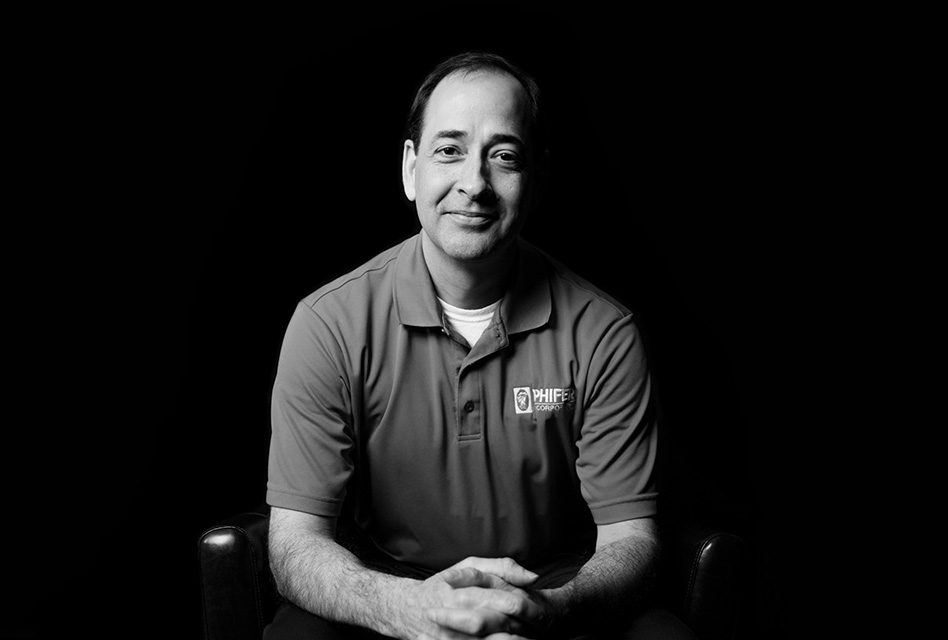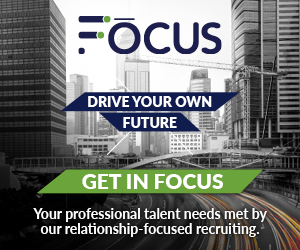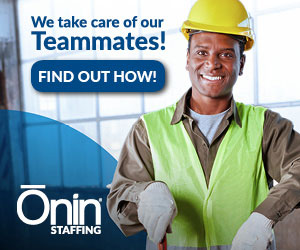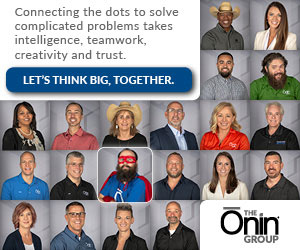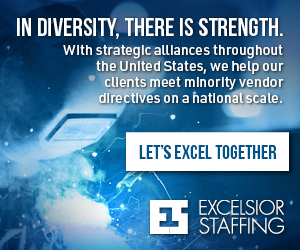Every now and then, there is an opportunity to converse with someone truly remarkable. Russell DuBose is one such person.
Russell’s background is uncommonly diverse. As a result, he has developed a perspective that is uniquely rich and profound.
Russell is the Human Resources Director of Phifer, Inc., the world’s largest producer of aluminum and fiberglass products. He served in the U.S. Army for 32 years as a Lieutenant Colonel, graduated from the University of Alabama with a bachelor’s degree in biology and psychology, and — at the age of 25 — became the Alabama Department of Labor’s Employment Service Office Manager.
I had the privilege of sitting down with Russell to hear his take on human resources and leadership, but what I really got was a masterclass on life through the lens of someone who understands both the macro- and micro-levels of business and the world.
This is Take5.
Shane: What has been your greatest accomplishment, professionally, up to this point in your career?
Russell: I have worked in Human Resources since January 3, 1990. I have two goals in mind that make me smile. The first one, of course, is when I see the people I work with every day, lead or influence succeeding. When I see them gain new skills, new experiences, complete projects, contribute to the organization, achieve, grow and get better as an individual, that makes me step back and smile.
Secondly, from the larger business point of view, I believe in what’s called an “Effects-Based Approach,” which is another thing that makes me smile. This is when we spend a lot of time developing good policies, practices, processes and set conditions that successfully allow people to grow individually, as a team and as part of a process area. When they experience those same qualities of experience, growth, project completion and goal completion because of the influence of good policy, that also brings a smile to my face.
This kind of success gives us energy and drive in HR because we want to go right back to the mindset of continuous improvement. It’s like, “well, we created this cause, and this was the effect — how can we make it better?”
We always want to have a mindset that never accepts the status quo. We are always going to rebuild the mouse-trap and test it using good scientific principles. Design the test, execute the test, measure the results — and if it makes sense for the business and it makes sense for the person — let’s do it! That is the mindset I like to bring to the table when we are talking about creating the conditions for success for the business.
Shane: So I love the fact that you are saying it’s good for the business and it’s good for the people. What is an example of a particular policy that you have crafted like that?
Russell: We look at policies that drive and cannot drive behavior, whether the behavior is from a benefit or from a policy that directs and is targeting specific behavior.
For example, let’s say a business has an electronic device policy that dictates what employees can or cannot use. The policy could include cellphones, smartwatches or the new wireless earbuds that are hitting the workplace. The company would need to ask themselves if having policies in place that allow the employee to utilize those technologies may benefit them and make the employees more effective and efficient.
We must satisfy some personal demands our employees have that makes the employees more satisfied, happier, and in turn, more productive. All the while, the policy still needs to protect the company’s team members, making sure they’re safe, undistracted and that employee tech usage doesn’t put them at risk in the manufacturing environment. You create policies that ensure both conditions are satisfied.
As we see in these types of industries, for example, we have electronic-free zones and encourage electronic zones so that we satisfy both conditions. It takes a good policy and good communication tools to develop those conditions.
Shane: What is your favorite failure — one that taught you an important lesson or put your life on a new trajectory?
Russell: I attended the University of Alabama for my undergraduate degree, and I started as a biology major. I loved biology in high school, and I had an affinity for that, but as a veteran work-study, I worked at the local Department of Labor office when I started college. The Department of Labor’s activities and biology are quite distant from each other. As I worked there all through my college years, I discovered I really liked labor, employment, human resources, recruiting — that whole genre of business.
I stuck with biology all through college and got another major as well, but in hindsight, I probably should have made the decision to change majors instead of adding a major much, much earlier. I understood botany and flora and those things, but those do not necessarily translate into the profession that I ended up choosing. I would have benefited from that change more in the career I chose, and I could have probably gained a few tools that I didn’t have upon college graduation.
So, I would say my degree put a bit of a limitation on my early career, albeit, not an unrecoverable failure. I had to do a lot of independent study and reading to make sure I caught up with my peers. So, that was my greatest failure.
Shane: Do you feel like that independent study, that unique perspective, gave you an edge over your peers?
Russell: I think compared to my peers I had a broader background because I went into the military right out of high school and stayed in the reserves throughout college and commissioned my junior summer. I went to officer candidate school and got commissioned.
When I graduated college, I was commissioned as an engineer officer, and the army sent me off to engineer school for six months.
I learned all about road building, bridge building and demolitions. It was a whole new world that I would not have otherwise experienced. So, here is a person in his early 20s who is a trained engineer from the military with biology skills and knowledge from college and who is working day-to-day as an employment specialist with the Department of Labor.
I think I had a pretty broad knowledge base and different viewpoint just from those experiences.
I worked with the Department of Labor for ten years. Then, I was promoted to office manager at a very young age. I was a 25-year-old office manager, and everyone I managed was in their 40s and 50s. Everyone. I was this young guy, but I had great relationships with all of my team, and we were a great team for many years.
Because of those experiences that I brought to the table, the team enjoyed my wide range of experiences as much as I did because I could talk with them about almost any subject.
I could help them with their flowers, and I could talk with the veteran reps. I could speak to a variety of subjects, so that was a wonderful experience.
I was in Birmingham commuting from Tuscaloosa working for the Department of Labor, loving life and just having a good time when Phifer recruited me. Phifer offered such a great opportunity I couldn’t turn it down.
To answer your question, yes. I think that broad viewpoint and those broad experiences certainly made it easier to build relationships across my generational peers.
Shane: The way you look at policy and the very circumspect, well-rounded perspective you are bringing in from all those different areas of study seems to be a pattern for you. That’s unique.
Russell: It is. Of course, as a military officer (I served in the military a total of 32 years), I’ve been to many military schools, been deployed to the Middle East and Afghanistan. I made colonel in the military. I’ve done all those things.
The military does a fantastic job in training, not only its soldiers, its officers and its leaders, but, we also experience development from a strategic level in what we call the “Operational Level.” The military calls it the “Tactical,” and in HR it’s similar, so we call it the “Transactional Level.”
I’ve always been able to analyze a big topic from a strategic point of view, an operational point of view and a transactional point of view. In other words, it gives me the ability to understand the organization’s interests whether it’s a country on the continent of Africa or a business here in Alabama. Once you understand its interests, then the strategy flows from there.
The instate of strategy is to meet the interest of the organization. Well then, how do you achieve the strategy? You have to go through a detailed planning process to develop an operational design that allows you to identify all of the elements in the time and with the space and resources given to achieve that strategy.
When you map these processes out, they translate to all the transactional requirements that have to be achieved to meet your operational timeline. They all live and breathe together. They look at policy in the same fashion — policy designed to meet the organization’s interest — so the policy has to be inclusive of what it takes operationally and then what it takes day-to-day.
What does it take transactionally to achieve success? If you approach policy from that point of view, you can achieve an effect-based policy that creates a cause and effect: Here is the policy, and here is the condition that it creates.
If you have the Franklin Covey approach, “the end in mind,” if you have the vision, then you can backwards plan and have a strong likelihood of success.
Shane: Looking back on your journey, knowing what you know now, what is one piece of advice you would give your 25-year-old self?
Russell: We were fortunate that, just a few years ago, our company embraced and sent many of our leaders to the Barry Wehmiller Leadership Institute in Saint Louis. Their CEO, Bob Chapman, spearheaded this initiative and he has written a book.
The whole premise is everybody matters, and it was a great way to articulate a paradigm that everyone from my company inherently believes. We believed the elements and the components and the goals, but then Bob was able to articulate in his book exactly what we were feeling.
It was also my team’s first exposure to the DISC, and that’s when I learned I was a high-D.
Intuitively I knew this already, but I did not know what the label was or the implications.
It was a great moment of self-discovery. In that leadership class we also learned the premise of “flexing” our DISC styles so that we can be better communicators with other DISC types. Understanding that I’m a D and knowing that I can now recognize the I’s and the S’s and the
C’s, I can flex and have a much better conversation with them.
When I recognize this, I’m not talking or avoiding active listening because I’m trying to prepare a response. Now, it’s all truly about listening, understanding, using those emotional intelligence skills and behaviors to really try to understand the person, their point of view and the situation they are in. It really creates a connection based on empathy. Because of this communication technique, those relationships are now stronger.
So, if I could tell my 25-year-old self something I would whisper, “DISC. You’re a D. Embrace it, but then understand what that means.”
Only 8% of the population are D’s, and D’s get a bad rap sometimes. They just have a different behavior pattern, and they can come across as being apathetic or just unapproachable and unfriendly. D’s have to be mindful of these things so they don’t create real or perceived barriers that could jeopardize relationships.
If my 25-year-old self had known this lesson, I think I would have had much stronger relationships with many, many more people. Everyone would have mutually benefited from a better experience.
Shane: You spoke about strengthening relationships. Is there a moment in time you can think of where you weren’t flexing your personality type, and it impacted a relationship in a tough way?
Russell: Yes. In crucial conversations, you learn the concept that, when both people are talking, no one is listening. Before my wife and I married, a wise preacher once told us that, at some point in our marriage, we would be angry with each other, but “y’all don’t be mad at each other at the same time.” I recognized this same principle in crucial conversations.
When you are in a high-speed, high-stress environment, it becomes very challenging to recognize that someone from another DISC type needs to chat and talk because you’re “in the fight.” It’s tough on a D to be patient in this situation and not cut the other person off within those tough conditions.
Your natural tendency is “I’ve got to jump in” because D’s like to have a bit of control. There is a strong temptation to pull away from that need of the other person. If you are not disciplined enough to take the time to concentrate and focus on that person as an individual, you may miss that moment, and you may miss it for a long time or completely miss that connection.
I’ve had those moments where, in that intense environment, I was approached by someone who wanted to have a conversation, and I didn’t give them enough time to fully express themselves. So, when we finish that conversation, they still have that gut feeling “I have more to say, I didn’t get to express myself. We’re okay, but where we ended is not as good as it could have been.” Whereas the D says “Okay, mission accomplished; let’s move on.”
So, absolutely. I’ve been involved in that situation, and I’m mindful of that. I watch out for that temptation.
Shane: I am really thrilled to meet somebody who just gets that with these profiles.
Russell: If you read Bob Chapman’s book or watch his videos, he tells a story that sticks with me. He is sitting in the chapel, and the father is escorting the daughter down the aisle for marriage. Chapman understands in his heart the value of the bride and how important she is as an individual — how so many people in that room love her as she joins the groom in matrimony.
He’s like, “She matters and, by the way, she is also my employee. All of my employees are the children of parents, siblings and spouses.” You see that value, and so a D always has to keep that in the back of his or her mind.
Shane: It’s almost uncomfortable to ask because we typically don’t like to think about this, but if you were hiring your replacement, what are some of the must-haves you would look for in an HR Director?
Russell: Succession planning is important, even if it’s for ourselves. From my experience in the Department of Labor, my experience in the private industry and my experience in the military, two things resonate: Leaders matter and leadership matters.
The organization is putting so much faith and trust in your position and what you do: Your vision, your operational planning, your transactional planning, your environment, your team. It’s so important because you touch so many lives. You have to get this right.
When I answer this question, these are some must-haves that I never compromise on.
The first things to ask are, do you have the values, do you have the passion, do you have the self-motivation, the self-discipline, and of course, do you have the competencies to lead Human Resources in 2019 moving forward?
There are so many moving variables in the Human Resources domain right now — from compliance, to culture, the dynamics of people and the multi-generations in the workplace. This is a decision that has to be spot-on.
I believe HR goes beyond knowing the law, the regulations, your handbook and your policies. Knowing your information is bachelor’s degree level stuff. It’s regurgitation you can find if you know how to Google. You have to be at the graduate-level to work. You must understand when you have a federal law and a state law colliding.
You have employees who have family with behavior and situational challenges that they are facing in their personal lives. You’ve got to be able to balance all these variables and come to a positive outcome that benefits the business, and more importantly, that employee. That’s how you build retention, loyalty and longevity.
This dynamic is necessary but not easy to do. It takes experience, values, and at the end of the day, it takes two important variables: judgment and courage to make those decisions. Those are the types of things I look for in a person.
Finally, I look for the intangibles. I key-in on how a person speaks and interacts with others since this is the window into a person’s soul. For example, I always hone in on the pronouns. Is this an “I” conversation or is this a “we” conversation?
That’s probably just a pet peeve of mine, but I’m in the “we” crowd. We don’t do this in isolation. This isn’t a single piece of paper on your desk for you to decide. This is a “we” process now. You have to be willing to go calling on others, get their ideas. At the end of the day, we are going to make a decision, but we are going to make an informed decision. We are going to let wisdom enter into this conversation and this decision so we can make a better decision. Are they a “we” person?
Finally, I look to see if they a delegator; if they are a doer or a “blender.” When I say “blender” I look for a person where they have to self-manage their priorities. They have to be cognizant of their resources, they have to understand what’s important and what’s at stake. Sometimes you have to roll up your sleeves and go to work.
Sometimes there is an “I need your time/I’m going to give you my time” situation and then two seconds later I know I have to delegate this next task because a report is due. I have to have the courage and the trust in my staff that they are going to take care of that, so I am going to delegate because I have this new requirement.
I am prioritizing by using my judgment and my courage that this is the right decision, and so those are the types of things I look for in someone whom I’m trying to groom into a leadership role with those responsibilities. These are the stakes that can make an organization succeed or fail, so that is why I put so much weight on these characteristics.
This is an art; it isn’t about the credentials, and it isn’t about having an awesome degree. To be honest, I really don’t care where you graduated from college. I never even ask where you graduated college from — I don’t care.
If you have the competencies to work in Human Resources, you have a proven track record, you understand all the domains of HR absolutely fantastically, then your character must be there as well. These are about the values you bring to the business. Do they align with the business so that the business can entrust the HR practice to you? That’s what I look for.
Shane: Our world has changed pretty dramatically over the last ten years, and it changed in the previous ten years too. There seems to be just this exponential change happening around us all the time. How has that impacted your field and how do you see that impacting your field moving toward the next ten years?
Russell: Without question, the single most changing variable we have witnessed in HR is Informational Technology, not only in the practice of HR, but its influence on people — smartphones, smartwatches, wireless earbuds with Bluetooth technologies. We have seen this technology change our lives. We have seen the deployment of benefits management through apps.
I see these technologies creeping into the HR domain over the next ten years. The employees can adjust their benefits on the fly where the changes then come in as a back office feed in ERP for updating.
We have just seen enormous changes in the technology world. I see that continuing over the next ten years. With AI coming online, I see an ability to make decisions instantaneously and, in some instances, AI being unbelievably accurate in comparison to humans.
However, about 20 years ago, I went to a conference and saw the former Auburn athletic director. He was asked the question, “Who gets the most attention on your coaching staff?”
He then told a story about a single mom with several kids where someone asked her: “You’re a single mom. You’re working hard, and you have two jobs. This is going to be an odd question, but which child do you love and give to the most?” Her answer was, “Whichever child needs it the most.”
The athletic director said that’s how he led Auburn athletics; he gave time and support to all his many coaches: “Who do I support the most? Whoever needs it the most.”
When I look at HR moving forward, we have all these technologies coming online, but at the end of the day, technology doesn’t replace relationships. It doesn’t replace face-to-face conversations. It doesn’t replace providing assistance to those who are in need.
When I look at Human Resources, there are some core beliefs and values we have regardless of technology and regardless of the practices we adopt. Those core values are non-negotiable.
We are always going to maintain our practices so we can provide to those who need it the most. If it needs to be a face-to-face conversation when it’s benefits enrollment time in November and they have some questions about healthcare or retirement, we are going to have the practices in place to meet that need.
I think organizations will have to do some very reflective thinking on how they want to practice HR moving forward. I do not see it as an AI-driven, automation-replaced domain.
We will have some of those tools. We may have some Millennials, some Generation Zs, and all these other generations coming along, and they may do a large portion of their HR work that way. We’re going to have those apps for them because that is what they need.
But at some point in their career, these younger generations may have a family situation. They may have a career decision to make. We’re going to have practices in place where we can have that one-on-one relationship and keep a broad view on that topic. We’ll maintain a manual process for those who need it as we grow into technology, and we are going to make state-of-the-art HR available to those who need it. That’s how we are approaching it.
When it comes to Human Resources in general, I don’t believe it’s a pure paradigm shift. I see HR broadening and deepening when it comes to culture and people developing from a “blue water point of view” as we see the convergence of wealth and wellness.
I think, in addition to technologies, we are going to see a lot of policy direction — especially for benefits — and a lot of product development. We may even see co-changes with the IRS, Department of Labor and some laws with Congress to expand the benefits domain to the benefit of the employee, and we are onboard with that.
For example, I just read an article the other day. We all know about the rising cost of healthcare, but the article stated the typical family spends $18,000 on healthcare costs in the United States.
The premise of the article was there is so much money being spent on healthcare that it robs that worker of the ability to invest in themselves. Whether it’s from a skills acquisition point of view or from a retirement point of view, they simply don’t have the net dollars available to grow, to save or, in some instances, to even provide.
I think we are going down that path to understand how to help. We just opened an onsite healthcare clinic six weeks ago. One value of our clinic is that it provides easier access to healthcare. In our model, we do not charge our employees or their families any copays or coinsurance to use our onsite healthcare clinic. Why? Because it makes net dollars available to them that they can further invest in themselves.
They may choose to increase their 401k contribution. They may wish to go take some classes to get more technical skills because they want to be promoted.
In the next ten years, there are lots of opportunities at all levels we think we will see in the U.S. from all stakeholders asking, “How do we create more net-worth for our employees?”
There are going to be many lines of effort to get us there, but I just think the convergence of wealth and wellness is something that is going to be introduced to the HR domain in a way we haven’t seen before. We look forward to that conversation and what that’s going to do for ordinary lives.
Shane: That’s a great first go at this. I really appreciate your time, your wisdom and you sharing that with us.
Russell: You’re not a vendor or a provider — you’re a partner — and have been for 20 years, and we appreciate you. You wouldn’t be if you didn’t have the philosophies that you do. What makes our organization partnership successful is because our values sit in line with each other, and when you bring those values, that’s part of a new proposition. Your local team of West Alabama has learned the value of art and science and their willingness to learn and grow with us.
That brings a dynamic. It brings something to the table that is not easily achieved. You don’t find many organizations that are willing to do that. I think that is one of the things that makes Ōnin unique and makes Ōnin a great partner for our business.
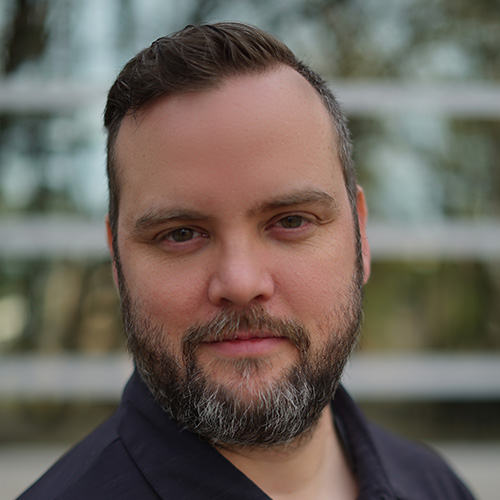
Shane Minor
The Onin Group
Shane Minor joined The Ōnin Group in 2016 to lead the newly formed Branding Team and communicate the culture of Ōnin to the world. Prior to Ōnin, Shane spent 16 years in creative, sales and marketing leadership positions for several organizations in the medical, tourism, economic development and outdoors industries.

